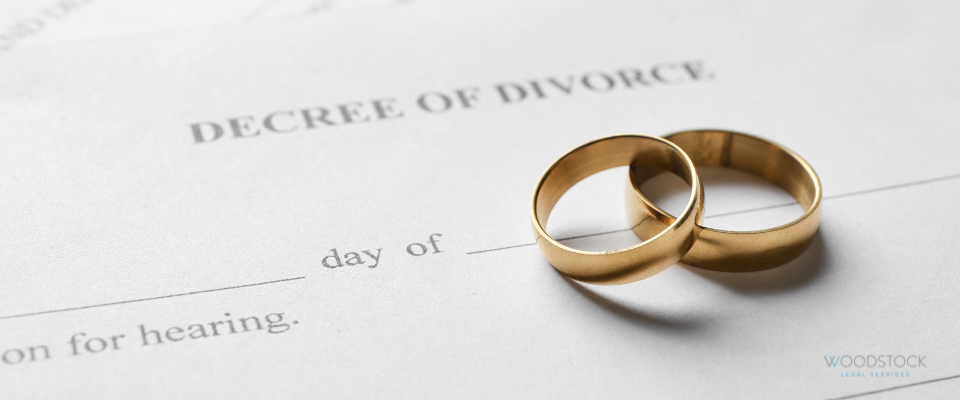Leasehold & Freehold Reform Bill 2023 - Our Legal Analysis
In our latest insights, we explore the intricacies of the Leasehold and Freehold Reform Bill, introduced to Parliament on 27 November 2023. This comprehensive 140-page bill, if enacted, is poised to significantly alter the landscape of property ownership in the UK, impacting enfranchisement, lease extensions, the right to manage, and various charges associated with long residential leases.

What is the Leasehold and Freehold Reform Bill?
Introduced to Parliament on 27 November 2023, the Leasehold and Freehold Reform Bill is a substantial legislative proposal, spanning 140 pages. It aims to revolutionise the existing leasehold system by implementing wide-ranging reforms in key areas of property law.
These reforms include changes to enfranchisement rules, lease extension procedures, rights to manage, and adjustments to service charges for long residential leases, along with management charges for freehold estates.
The bill underwent its first reading in the House of Commons on the day of its presentation. It's important to note that as the bill progresses through the legislative process, it may be subject to significant amendments.
With the potential for a general election in 2024, the future of the bill becoming law before the election remains uncertain. Despite these factors, the proposed reforms signify a major shift towards improving fairness and transparency in leasehold ownership, with the goal of enhancing the rights and autonomy of leaseholders.
The Intent and Objectives of the Leasehold and Freehold Reform Bill
The Leasehold and Freehold Reform Bill marks a critical legislative initiative to reform the UK's
leasehold system. This bill addresses longstanding challenges faced by leaseholders, such as escalating ground rents, restrictive lease terms, and the complexities involved in leasehold enfranchisement. The bill's introduction aims to establish a more equitable and transparent framework for leasehold ownership, thereby augmenting the rights and governance capabilities of leaseholders over their properties.
Implications of the Leasehold and Freehold Reform Bill for Tenants
The Leasehold and Freehold Reform Bill is set to introduce significant changes for tenants, especially those holding leaseholds. Understanding these changes is essential for tenants to effectively navigate their rights and opportunities under the new legislation.
Extended Lease Terms and Reduced Costs
A pivotal change for tenants is the proposed extension of lease terms to 990 years, a considerable increase from current standards. This extension aims to eliminate the burdensome and costly process of frequent lease renewals. Moreover, the exclusion of marriage value from lease extension and freehold purchase valuations is anticipated to lower costs for tenants, making leasehold management more financially viable.
Facilitating Collective Enfranchisement and Management Rights
The bill simplifies the process for tenants to collectively purchase their building's freehold, known as collective enfranchisement. By raising the threshold for collective enfranchisement in mixed-use buildings, tenants in properties with significant commercial elements can now participate. This amendment empowers tenants, offering them greater control over their living environments and potentially reducing disputes with landlords regarding building management and upkeep.
Ground Rent Reforms
Addressing the contentious issue of ground rent, the bill proposes capping ground rents on new long residential leases to a nominal amount. This reform is a significant step towards shielding leaseholders from unfair practices and reducing their financial burden.
Promoting Commonhold as an Alternative
The bill advocates for commonhold as a feasible alternative to leasehold. Commonhold allows residents to collectively own and manage their building, offering more autonomy and stability than traditional leasehold arrangements. This shift could provide tenants with a more democratic form of property ownership, where they actively participate in management and decision-making.
Enhanced Right to Manage
The bill strengthens the right to manage for leaseholders, enabling them to take control of their property's management without needing to prove landlord fault. This provision grants leaseholders more autonomy and can lead to more efficient and effective property management.
Understanding the Leasehold Reform Bill: A New Era for Leaseholders
The Leasehold and Freehold Reform Bill introduces transformative amendments to existing legislation, notably extending lease terms for both houses and flats to 990 years. This change, coupled with a more tenant-friendly valuation method, substantially reduces financial burdens, making lease extensions and freehold acquisitions more accessible.
Extended Lease Terms: A Financial Win for Tenants
One of the most notable changes is the extension of lease terms for houses and flats, now proposed to be 990 years in addition to the original term. This extension, coupled with the removal of marriage value from valuation considerations, will make it more affordable for tenants to extend leases or acquire freehold.
Collective Enfranchisement: Empowering Leaseholders
A key reform in the bill is the increase in the threshold for collective enfranchisement in mixed-use buildings. This amendment facilitates greater autonomy for tenants, allowing them to collectively own and manage their properties, a move towards more democratic property rights.
Streamlining Procedures: Simplifying Lease Extensions and Acquisitions
The bill's procedural changes, while not directly impacting landlord portfolios, significantly simplify the process for tenants. The removal of the two-year qualifying period for lease extension claims is a notable improvement, streamlining the acquisition process.
In-Depth Analysis: The Leasehold and Freehold Reform Bill's Impact
Valuation Methodology: Making Leasehold More Affordable
The revised valuation method under the bill is a game-changer, especially with the exclusion of marriage value. This adjustment is expected to lower lease extension and freehold acquisition costs, a win for tenants seeking affordable leasehold legal advice.
Enhancing Rights in Mixed-Use Properties
The bill's focus on mixed-use properties addresses the evolving urban landscape, offering tenants in such buildings more opportunities for collective ownership and management, a step towards inclusive property rights.
Dispute Resolution: A More Efficient System
Replacing the complex dispute resolution processes with a clearer system benefits both tenants and landlords, reducing legal disputes and associated costs in leasehold matters.
Ground Rent Reforms and the Promotion of Commonhold
Restructuring Ground Rents: Protecting Leaseholders
The bill's approach to capping ground rents on new leases is a significant move to protect leaseholders from escalating costs, ensuring fairer practices in the property market.
Advancing Commonhold: A Viable Alternative to Leasehold
Promoting commonhold as an alternative to leasehold empowers residents with more control and autonomy over their properties, aligning with contemporary homeownership goals.
Strengthening Leaseholder Rights: A Focus on Property Management
The enhanced right to manage provisions in the bill empower leaseholders, enabling them to take charge of their property's management more efficiently and cooperatively.
Our Commitment to Your Property Rights
At Woodstock Legal Services, we are at the forefront of understanding these legislative changes. Whether you're seeking landlord advice or a tenant looking to navigate these new reforms, our property team is equipped to provide expert guidance tailored to your needs.
Contact us for Expert Leasehold Legal Advice
For detailed leaseholder legal advice or guidance on the Leasehold Reform Bill, contact Simone Ritchie, head of our specialist Property team, at s.ritchie@woodstocklegalservices.co.uk, or complete the form below.
Contact Us
News & Insights










